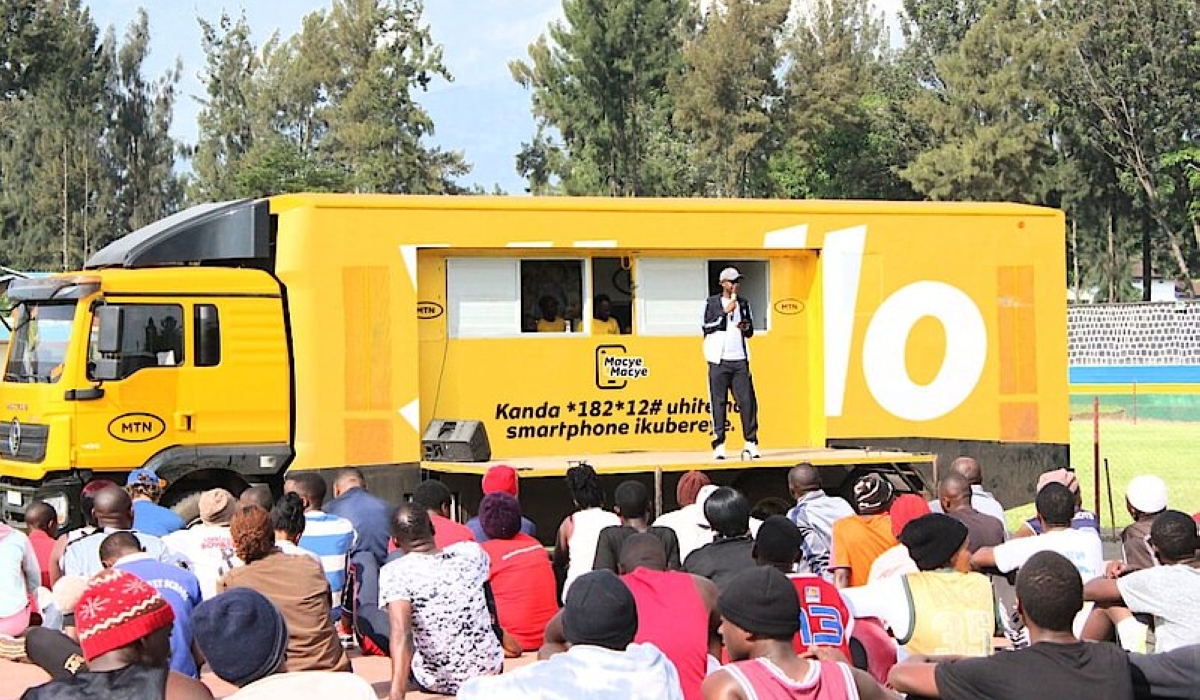
Rwanda’s MTN returns to profitability
The first quarter of 2025 saw a reversal in MTN Rwanda Plc’s profitability due to increased service revenue, robust fintech business performance, and better cost control.
In the first quarter of 2025, Rwanda’s top telecom company recorded a 228.5 percent year-over-year increase in net profit to Rwf1.6 billion.
In 2024, it reported a loss of Rwf1.2 billion during the same quarter.
In an exclusive interview with The New Times, MTN’s Chief Financial Officer Dunstan Ayodele Stober stated, “It is exciting to be able to deliver a profit after last year’s challenges.”
Earnings before interest, tax, depreciation, and amortization (EBITDA), a measure of earnings from core activities, rose 9.3% to Rwf26.5 billion, according to the telco’s Q1 financial disclosures.
Although the number of data subscribers fell by 8.2% to 2.3 million, data revenue increased by 12.2% to Rwf11.7 billion, accounting for the majority of the 12.4% increase in total revenue to Rwf67.9 billion.
As mobile money usage continues to rise throughout Rwanda, fintech revenue (Mobile Money) increased by 28% year over year to Rwf32.9 billion.
Though it still makes a substantial contribution, its voice income fell 6.4% annually to Rwf15.8 billion.
Stober pointed out that the decline in sales expenses by over 6% annually, the recovery from the problem of high roaming rates in East Africa’s One Area Network, and controlled operating expenses were further factors in the profit turnaround.
In order to reduce asset depreciation and generate a gain of almost Rwf1 billion, he continued, the company adjusted the amortization term of its investments to reflect a more accurate useful life.
The new worldwide financial reporting requirements include this as well.
MTN suffered successive quarters of losses in 2024 as a result of the competitive market dynamics brought on by the modification of the mobile termination rate (MTR) regulations.
MTRs, or the payments telecom operators pay one another when calls end across networks, were set to zero for a one-year trial period in August 2023 by the Rwanda Utilities and Regulatory Authority (RURA). This meant that no operator paid termination fees to another.
The telco has been advocating for the reinstatement of the levies, pointing out that they were reducing its earnings. Stober emphasized that in order to make a final judgment, they are currently working with the regulator.
“The return on investment helps one to continue delivering on value proposition, and the whole purpose is simply to make sure we are compensated for the cost of carrying traffic, rather than being a profit-making scheme,” according to the statement made by the player, whether viewed from a regional or other market perspective.
The Teachings of “Macye Macye”
In order to make it easier for consumers to buy smartphones and tablets on an installment plan, MTN Rwanda, Bank of Kigali, and smartphone financing business Intelligra Solutions introduced the Macye Macye scheme in 2022.
The goal of this project was to increase the accessibility of devices for those who were unable to pay the entire cost at once.
However, it encountered a problem in 2024 where some were selling smartphones with unpaid balances and others had money taken out of their MoMo wallets as part of Macye Macye, even though they had no such loan.
According to reports, the operator fixed the problems and returned the money that had been wrongfully withheld.
To ensure that no one is harmed as a result, Stober stated, “We are concentrating on working with the partners to try and address remaining complaints and challenges from customers.”
To address such issues in the near future, he continued, “we are also examining the lessons we can learn from Macye Macye in terms of commercial execution to deliver something that is sustainable and appealing to customers.”
In addition to Macye Macye, he mentioned that the telco provided 100,000 subsidized handsets, which helped to increase the nation’s smartphone penetration rate.
According to MTN Rwanda’s financial statement, the telecom carried out network improvement projects in 2024, which Stober claimed was connected to the initiative to promote customers’ switch to 4G networks.
“We expect both the revenue growth we are looking at and the cost to deliver anything between 40 and 42 percent in terms of EBITDA margin, so cost control is very important to us.”
All Categories
Recent Posts
Tags
+13162306000
zoneyetu@yahoo.com



